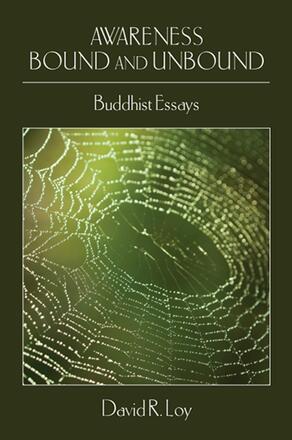
Awareness Bound and Unbound
Buddhist Essays
Alternative formats available from:
Essays from the singular experience of Buddhist social critic and philosopher David R. Loy on classic and contemporary concerns.
Description
What do we need to do to become truly comfortable—at one—with our lives here and now? In these essays, Buddhist social critic and philosopher David R. Loy discusses liberation not from the world, but into it. Loy's lens is a wide one, encompassing the classic and the contemporary, the Asian, the Western, and the comparative. Loy seeks to distinguish what is vital from what is culturally conditioned and perhaps outdated in Buddhism and also to bring fresh worldviews to a Western world in crisis. Some basic Buddhist teachings are reconsidered and thinkers such as Nagarjuna, Dogen, Eckhart, Swedenborg, and Zhuangzi are discussed. Particularly contemporary concerns include the effects of a computerized society, the notion of karma and the position of women, terrorism and the failure of secular modernity, and a Buddhist response to the notion of a clash of civilizations. With his unique mix of Buddhist philosophical insight and passion for social justice, Loy asks us to consider when our awareness, or attention, is bound in delusion and when it is unbound and awakened.
David R. Loy is Besl Family Chair Professor of Ethics/Religion and Society at Xavier University. He is the author of several books, including A Buddhist History of the West: Studies in Lack, also published by SUNY Press, and Money, Sex, War, Karma: Notes for a Buddhist Revolution.
Reviews
"Loy … writes from a comparative perspective to determine what is vital and what is culturally outdated in Buddhism and Western worldviews. The ethical challenges hindering liberation are, in his opinion, the human propensity to cling to dualistic modes of thought and behavior, which, he argues convincingly, is the source of the violence, poverty, and exploitation that are presently destroying the human community and the life-forms with which humankind shares planet Earth." — CHOICE
"These essays, each one in its own right, are extremely thought-provoking. The various topics addressed are indeed significant, timely, and crucial toward understanding events and situations in our contemporary global scene." — Ruben L. F. Habito, author of Experiencing Buddhism: Ways of Wisdom and Compassion